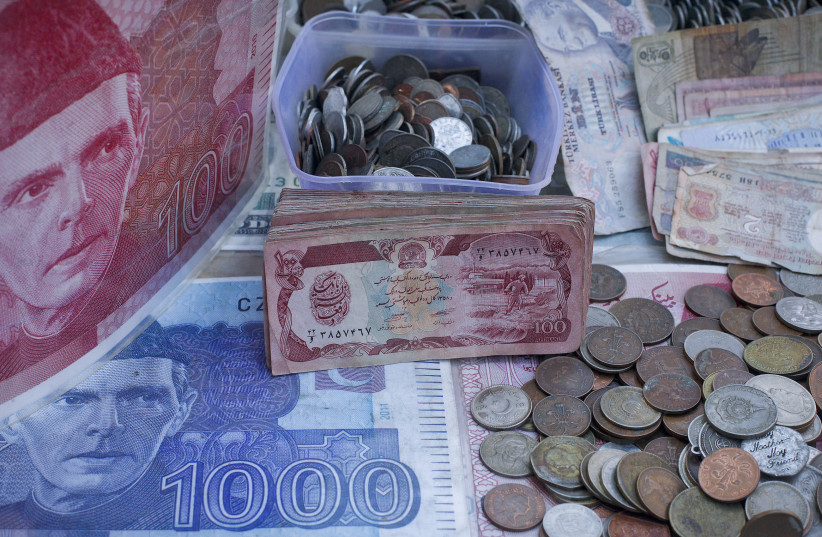How much money would you need to be happy in your daily life? Is too much bad for you?
Researchers from Princeton University, led by Israeli-American psychologist and economist and 2002 Nobel Prize laureate Prof. Daniel Kahneman, found one result while a team from the University of Pennsylvania found the opposite.
However, the two teams worked together to reconcile their contradictory results and found a steady association between larger incomes and greater happiness for most people but a rise and plateau for an unhappy minority.
Foundational work published in 2010 by Kahneman and British economist Sir Angus Deaton had found that day-to-day happiness rose as annual income increased, but above $75,000 it leveled off and happiness plateaued but then flattened somewhere between $60,000 and $90,000.
In contrast, in work published in 2021 from the Wharton School of Business at the University of Pennsylvania, Dr. Matthew Killingsworth found that happiness rose steadily with income well beyond $75,000 – without evidence of a plateau.
Reconciling differences

To reconcile the differences, the two paired up in what’s known as an “adversarial collaboration,” joining forces with Penn Integrates Knowledge University Prof. Barbara Mellers as arbiter. In a new Proceedings of the National Academy of Sciences paper titled “Income and emotional well-being: A conflict resolved,” the trio show that, on average, larger incomes are associated with ever-increasing levels of happiness. Taking a closer look, however, the relationship becomes more complex, revealing that within that overall trend, an unhappy cohort within each income group shows a sharp rise in happiness up to $100,000 annually and then plateaus.
“In the simplest terms, this suggests that for most people, larger incomes are associated with greater happiness,” said Killingsworth. “The exception is people who are financially well-off but unhappy. For instance, if you’re rich and miserable, more money won’t help. For everyone else, more money was associated with higher happiness to somewhat varying degrees.”
Mellers dug into this last notion, noting that emotional well-being and income aren’t connected by a single relationship. “The function differs for people with different levels of emotional well-being,” she said. Specifically, for the least happy group, happiness rises with income until $100,000, then shows no further increase as income grows. For those in the middle range of emotional well-being, happiness increases linearly with income, and for the happiest group the association actually accelerates above $100,000.
The reanalysis of Killingsworth’s experienced sampling data confirmed the flattening pattern only for the least-happy people. Happiness increases steadily with income among happier people, and even accelerates in the happiest group. It suggested that Kahneman and Deaton might have reached the correct conclusion if they had described their results in terms of unhappiness rather than happiness; their measures could not discriminate among degrees of happiness because of a ceiling effect.
“In the simplest terms, this suggests that for most people larger incomes are associated with greater happiness,” said Killingsworth, lead paper author. “The exception is people who are financially well-off but unhappy. For instance, if you’re rich and miserable, more money won’t help. For everyone else, more money was associated with higher happiness to somewhat varying degrees.”
Drawing these conclusions would have been challenging had the two research teams not come together, declared Mellers, who suggested there’s no better way than adversarial collaborations to resolve scientific conflict.
“This kind of collaboration requires far greater self-discipline and precision in thought than the standard procedure,” she explained. “Collaborating with an adversary – or even a non-adversary – is not easy, but both parties are likelier to recognize the limits of their claims.” Indeed, that’s what happened, leading to a better understanding of the relationship between money and happiness.
The findings have real-world implications, Killingsworth concluded.
“They could inform thinking about tax rates or how to compensate employees, and they matter to individuals as they navigate career choices or weigh a larger income against other priorities in life.
“However, for emotional well-being, money isn’t the be-all end-all. Money is just one of the many determinants of happiness. Money is not the secret to happiness, but it can probably help a bit.”
Matthew Killingsworth
“However, for emotional well-being, money isn’t the be-all end-all. Money is just one of the many determinants of happiness. Money is not the secret to happiness, but it can probably help a bit.”
